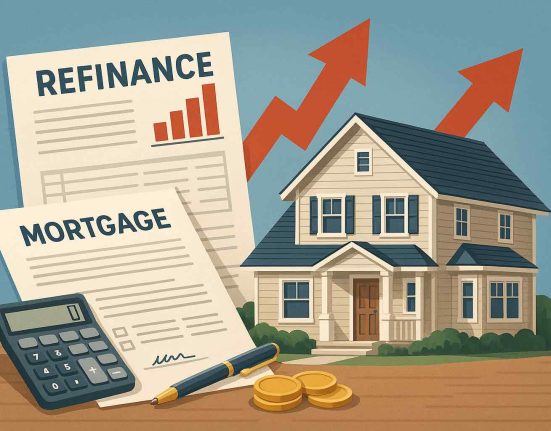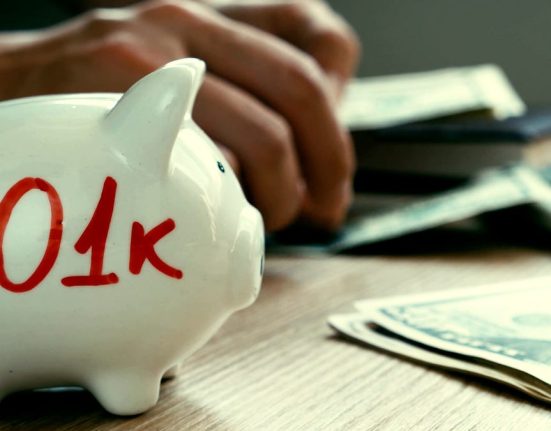Personal loans may be seen as a last resort for covering large expenses or consolidating debt, but they can actually be a helpful financial tool.
They offer lower interest rates than credit cards and often don’t require collateral, making them a safer and more affordable option for financing.
There are many kinds of personal loans, however, and picking the right one for your needs is critical.
How personal loans work
A personal loan is a type of installment loan that provides a lump sum of money upfront and is typically offered by banks, credit unions or online lenders like SoFi and Upgrade.
Once the funds are disbursed, the borrower begins making regular monthly payments that include a portion of the principal plus interest.
Personal loans can be used for any variety of purposes, from paying medical bills and consolidating debt to financing a wedding or buying a new car. Platforms like LendingTree and Credible let you compare personal loan offers from multiple lenders without affecting your credit score.
Credible® Student Loans
-
Eligible borrowers
Undergraduate and graduate students, parents
-
Loan amounts
Amount varies by individual lender
-
Loan terms
-
Loan types
-
Borrower protections
Amount varies by individual lender
-
Co-signer required?
Varies by individual lender
-
Offer student loan refinancing?
Pros
- Lets you compare offers from multiple lenders
- None of the lenders on Credible charge origination fees or prepayment penalties
- Can check prequalified rates with lenders for free without a hard credit check
Cons
- Doesn’t directly underwrite loans, so you’ll have to do some comparison shopping
Not all loans are created equal, though. Some require collateral, while others are unsecured. Some have fixed interest rates, while others are variable.
Understanding the differences can help you choose the one that best fits your financial needs and protects you from unexpected risks.
Unsecured personal loans
An unsecured loan doesn’t require collateral, which means you won’t risk losing an asset, like your car or house, if you default. Student loans, medical loans and debt consolidation loans are all types of unsecured personal loans.
Lenders look at your credit, income and financial history to decide whether to approve you for an unsecured loan. The higher your credit score, the better your chances are of being approved for the best rates.
They may also review your employment history and education, especially if your credit history is thin.
LightStream offers low-interest unsecured personal loans with flexible terms for people with good to excellent credit.
LightStream Personal Loans
-
Annual Percentage Rate (APR)
6.94% – 25.29%* APR with AutoPay
-
Loan purpose
Debt consolidation, home improvement, auto financing, medical expenses, and others
-
Loan amounts
-
Terms
24 to 240 months* dependent on loan purpose
-
Credit needed
-
Origination fee
-
Early payoff penalty
-
Late fee
Terms apply. *AutoPay discount is only available prior to loan funding. Rates without AutoPay are 0.50% points higher. Excellent credit required for lowest rate. Rates vary by loan purpose.
Pros
- Same-day funding available through ACH or wire transfer (conditions apply)
- Loan amounts up to $100,000
- No origination fees, no early payoff fees, no late fees
- LightStream plants a tree for every loan
Cons
- Requires several years of credit history
- No option to pay your creditors directly
- Not available for student loans or business loans
- No option for pre-approval on website (but pre-qualification is available on some third-party lending platforms)
An unsecured loan isn’t without risks. Defaulting on payments can seriously hurt your credit score for years. Your lender may tack on late fees and refer your debt to a collection agency, and they can also sue you to recover the balance. If they win, your wages can be garnished or a court order may allow them to withdraw funds directly from your bank account.
Who’s this for? An unsecured loan is best for borrowers with good credit who want to finance a large expense, like a wedding or home repairs, without risking assets.
Secured personal loan
A secured loan, on the other hand, is backed by collateral. That means if you fail to make payments, you agree to hand over an asset, like your car or house. Because there’s less risk to the lender, secured loans often come with lower interest rates and easier approval requirements.
OneMain Financial Personal Loans
-
Annual Percentage Rate (APR)
-
Loan purpose
Debt consolidation, major expenses, emergency costs
-
Loan amounts
-
Terms
-
Credit needed
-
Origination fee
Origination fee starting at $25 to $500 or percentage ranging from 1% to 10% (depends on your state)
-
Early payoff penalty
-
Late fee
Up to $30 per late payment or up to 15% (depends on your state)
Terms apply.* Click here to see if you prequalify for a personal loan offer.
Pros
- Approves applicants with bad or fair credit
- No early payoff fees
- Reasonable loan minimums ($1,500) for smaller needs
- Can pre-qualify with a soft credit check (no hard inquiry right away)
- ACH funding within 1-2 business days (sometimes same day with proper paperwork)
- Option to apply for loan (with collateral) for potentially lower rates
- Borrowers can choose the date the bill is due each month
- Applicants may apply with a co-applicant or, if married, may apply for a loan separately from spouse
Cons
- High origination fee
- High interest rates
- No autopay APR discount
- No co-signers
*You must complete a loan application and continue to meet any criteria used to select you for a loan offer. Not all applicants are approved. Loan approval and actual loan terms depend on applicant’s state of residence and ability to meet OneMain Financial credit standards such as a responsible credit history, sufficient income after monthly expenses, and if applicable, availability of eligible collateral.
Not all approved applicants qualify for larger loan amounts, lower APRs, or the most favorable loan terms. For example, larger loan amounts typically require a first lien on a motor vehicle that is no more than ten years old, meets our value requirements, and is titled in applicant’s name with valid insurance. APRs are generally higher on loans not secured by a vehicle.
Example Loan: A $6,000 loan with a 24.99% APR that is repayable in 60 monthly installments would have monthly payments of $176.07.
OneMain charges origination fees allowed by law. Depending on the state where the loan is opened, the origination fee may be either a flat amount or a percentage of the loan amount. Flat fees vary by state, ranging from $25 to $500. Percentage-based fees vary by state, ranging from 1% to 10% of the loan amount subject to certain state limits on the fee amount.
For information about these fees and minimum and maximum loan sizes available in certain states, visit omf.com/loanfees.
Current OneMain Customers: Loan offers presented to a consumer assume the individual has no active loan with OneMain or one of its affiliates. If a customer applies for a new loan offer, a OneMain representative will discuss available options.
Active-duty military, their spouse or dependents covered by the Military Lending Act (MLA) may not pledge any vehicle as collateral. If you are covered by the MLA, you are not eligible for secured loans.Loan proceeds cannot be used for postsecondary educational expenses as defined by the CFPB’s Regulation Z such as college, university or vocational expense; for any business or commercial purpose; to purchase cryptocurrency assets, securities, derivatives or other speculative investments; or for gambling or illegal purposes.
Time to Fund Loans: Funding within one hour after loan closing through SpeedFunds® must be disbursed to a bank-issued debit card. Disbursement by check or ACH may take up to 1-2 business days after closing.
OneMain Financial Personal Loans approves applicants with bad or fair credit by securing their loans with collateral.
Who’s this for? Secured loans are best if you have a low credit score or want a better rate and are comfortable putting something valuable on the line.
Fixed and variable-rate personal loans
Bank loans come with an interest rate that’s either fixed or variable. A fixed rate stays the same throughout the life of the loan, meaning predictable monthly payments that are easier to budget around.
Variable-rate loans start with a certain interest rate, but can fluctuate based on market conditions. They usually start lower than fixed rates and, if market rates decrease, you’ll save even more in interest.
But there’s always the risk that market rates will rise, making your interest rate and monthly payment increase.
Fintech company SoFi lets you choose between a fixed or variable rate.
SoFi Personal Loans
-
Annual Percentage Rate (APR)
8.99% – 35.49% when you sign up for autopay
-
Loan purpose
Debt consolidation/refinancing, home improvement, relocation assistance or medical expenses
-
Loan amounts
-
Terms
-
Credit needed
-
Origination fee
-
Early payoff penalty
-
Late fee
Pros
- No origination fees required, no early payoff fees, no late fees
- Unemployment protection if you lose your job
- DACA recipients can apply with a creditworthy co-borrower who is a U.S. citizen/permanent resident by calling 877-936-2269
- Can have more than one SoFi loan at a time (state-permitting)
- May accept offer of employment (to start within the next 90 days) as proof of income
- Co-applicants may apply
Cons
- Applicants who are U.S. visa holders must have more than two years remaining on visa to be eligible
- No co-signers allowed (co-applicants only)
Fixed rates from 8.99% APR to 29.49% APR reflect the 0.25% autopay interest rate discount and a 0.25% direct deposit interest rate discount. SoFi rate ranges are current as of 02/06/2024 and are subject to change without notice. The average of SoFi Personal Loans funded in 2022 was around $30K. Not all applicants qualify for the lowest rate. Lowest rates reserved for the most creditworthy borrowers. Your actual rate will be within the range of rates listed and will depend on the term you select, evaluation of your creditworthiness, income, and a variety of other factors.
Co-signed personal loans
With a co-signed loan, a second party (often a parent, spouse or friend) applies for the loan, as well, in most cases because the primary applicant has bad credit or a thin credit file. More than 90% of private student loans are co-signed, for example.
A co-signer can greatly improve your chances of getting approved or receiving a better rate. The co-signer does not have access to the loan funds but legally shares responsibility for the debt and is responsible for repayment if the primary borrower falls behind or defaults.
With student loans, lenders often allow co-signers to be released from their obligation after a certain number of on-time payments. Education lender Edly only requires borrowers to make six consecutive monthly payments before allowing a co-signer to be released, the shortest term we’ve found.
- Considers borrowers’ schooling and programs
- All loan payments are income-based
- Hardship protections available
- No co-signer required
- Student success team and career counselors available for support
- Only 7-year loan terms
- Only variable-rate loans
- Not available in every state
- Non-cosigned loans tend to charge higher interest rates
Joint personal loans
A joint loan is a loan shared between two people who apply together. Like a co-signed loan, lenders evaluate both applicants’ incomes and credit histories, but both parties have access to the funds.
Prosper allows borrowers to submit a joint application and issues loans from $2,000 up to $50,000, with repayment terms of up to 60 months.
Prosper Personal Loans
-
Annual Percentage Rate (APR)
-
Loan purpose
Debt consolidation/refinancing, home improvement, auto/motor, medical or dental, big purchase and more
-
Loan amounts
-
Terms
24, 36, 48, and 60 months
-
Credit needed
-
Origination fee
1%-9.99%, deducted from loan proceeds
-
Early payoff penalty
-
Late fee
5% of monthly payment amount or $15, whichever is greater (with 15-day grace period)
Pros
- Co-borrowers are permitted
- Repeat borrowers may qualify for APR discounts
- Option to change your payment date according to when works best for you
- Wide range of loan amounts
- No prepayment penalty
Cons
- High late fees
- Origination fee of 1% to 9.99%, deducted from loan proceeds
Debt consolidation loans
A debt consolidation loan combines multiple debts — like credit cards, medical bills and payday loans — into one single monthly payment. Not only are you able to get a lower interest rate, but you only have one payment to keep track of.
Keep in mind that consolidating doesn’t eliminate your debt. It just restructures it.
Upgrade Personal Loans
-
Annual Percentage Rate (APR)
-
Loan purpose
Debt consolidation/refinancing, home improvement, major purchase
-
Loan amounts
-
Terms
-
Credit needed
-
Origination fee
1.85% to 9.99%, deducted from loan proceeds
-
Early payoff penalty
-
Late fee
Up to $10 (with 15-day grace period)
Pros
- No early payoff fees
- Loans up to $50,000
- Fixed interest rates (no surprises)
- Can pay creditors directly (may take up to two weeks)
- Several available discounts including autopay
- Fast funding in as little as 1 day*
Cons
- Origination fee of up to 9.99% (deducted from your loan)
Why Upgrade is the best for financial literacy:
- Free credit score simulator to help you visualize how different scenarios and actions may impact your credit
- Charts that track your trends and credit health over time, helping you understand how certain financial choices affect your credit score
- Ability to sign up for free credit monitoring and weekly VantageScore updates
Upgrade offers debt consolidation loans for up to $50,000, making it a solid choice if you have large debts. Funds can be available the next business day or you can choose to have Upgrade send payment directly to your creditors.
Who’s this for? Debt consolidation loans are best if you have multiple high-interest debts, like credit card bills, and want a lower rate and a more simplified payment structure.
Personal lines of credit
A personal line of credit is a flexible loan that works like a credit card and is best suited for borrowers who need access to cash over time, rather than in a lump sum.
You’re approved for a certain credit limit and can draw from it as needed, paying interest only on the amount you use. It’s a revolving form of credit, meaning you can reuse the funds as you repay them.
U.S. Bank Personal Line of Credit
-
Annual Percentage Rate (APR)
-
Loan purpose
Unsecured revolving line of credit for ongoing needs, like home repairs
-
Loan amounts
-
Credit score needed
-
Origination fee
-
Cash advance fee
4% of each advance amount, $10 minimum
-
Late fee
Pros
- Competitive interest rates
- No origination fee or annual fee
- No collateral required
Cons
- Late fee of up to $40
- No interest-free grace period
Personal lines of credit often require strong credit and steady income. U.S. Bank approves applicants with a 680 FICO Score for lines of credit up to $25,000, with no application fee or annual fee.
Buy now, pay later
A buy now, pay later (BNPL) loan is short-term financing usually offered at checkout that lets you split your payment into smaller installments, often with no interest if paid on time.
Klarna
-
Interest rates
-
Credit limit
No predefined spending limit
-
Loan terms
Four interest-free payments every two weeks or one-time payment within thirty days
-
Monthly payment plan?
Yes, users can pay over 6 to 24 months. APRs range from 0.00% to 35.99%
-
Fees
-
Available merchants
Accepted at more than 450,000 merchants, including Amazon, Best Buy, Walmart and Target. Through the Klarna card, you can buy from retailers not integrated with the company.
Pros
- No late fees
- Widespread acceptance
- Multiple payment options
Cons
- No way to reschedule payments
- Some loans come with interest
BNPL can be helpful for financing small-to-midsize purchases, but it can also lead to overspending. Missing a payment could also trigger fees and hurt your credit score.
Klarna and Afterpay are among the leaders in the BNPL space, accepted by thousands of stores.
Cash App Afterpay
-
Interest rate
0% on purchases under $400. Up to 35.99% on purchases over $400.
-
Credit limit
$35 to $2,500 per transaction.
-
Loan terms
Four installments over six weeks.
-
Monthly payment plan?
Yes, Pay Monthly plan is available for purchases from $100 to $10,000, with payments across 3, 6 to 12 or 24 months. APR ranges from 0% to 35.99%.
-
Fees
One-time late fee of up to 25% on purchases under $40. For purchases of $40 or more, an initial $10 late fee and $7 for every 7 days, up to $68 or 25% of the purchase price, whichever is less.
-
Available merchants
Afterpay is accepted at over 15,000 merchants nationwide, including Sephora, Ulta Beauty, Target and Best Buy.
Pros
- Soft credit check
- Can be used online and in stores
Cons
- Late fee can be as much as $68
- Pay Monthly not available in Hawaii, New Mexico, Nevada or West Virginia
Personal loans FAQs
How long does it take to get a personal loan?
A personal loan can be funded as quickly as the same day, especially with an online lender. Brick-and-mortar banks and credit unions may take about a week or more.
How can I get a personal loan with bad credit?
With bad credit, you can improve your chances by applying with a co-signer, choosing a secured loan or going through a credit union or a lender that specializes in borrowers with weak credit.
Can you refinance a personal loan?
Yes, you can refinance a personal loan with a new one with better rates or terms. You might look into refinancing if your credit has improved and you think you could secure a better rate. Refinancing to a longer term can lower your monthly payments, although you may pay more interest over the long term. Keep in mind that a new loan will likely come with new fees and cause a temporary dip in your credit score.
Subscribe to the CNBC Select Newsletter!
Money matters — so make the most of it. Get expert tips, strategies, news and everything else you need to maximize your money, right to your inbox. Sign up here
Why trust CNBC Select?
At CNBC Select, our mission is to provide our readers with high-quality service journalism and comprehensive consumer advice so they can make informed decisions with their money. Every article is based on rigorous reporting by our team of expert writers and editors with extensive knowledge of personal loan products. While CNBC Select earns a commission from affiliate partners on many offers and links, we create all our content without input from our commercial team or any outside third parties, and we pride ourselves on our journalistic standards and ethics.
Catch up on CNBC Select’s in-depth coverage of credit cards, banking and money, and follow us on TikTok, Facebook, Instagram and Twitter to stay up to date.
Editorial Note: Opinions, analyses, reviews or recommendations expressed in this article are those of the Select editorial staff’s alone, and have not been reviewed, approved or otherwise endorsed by any third party.







